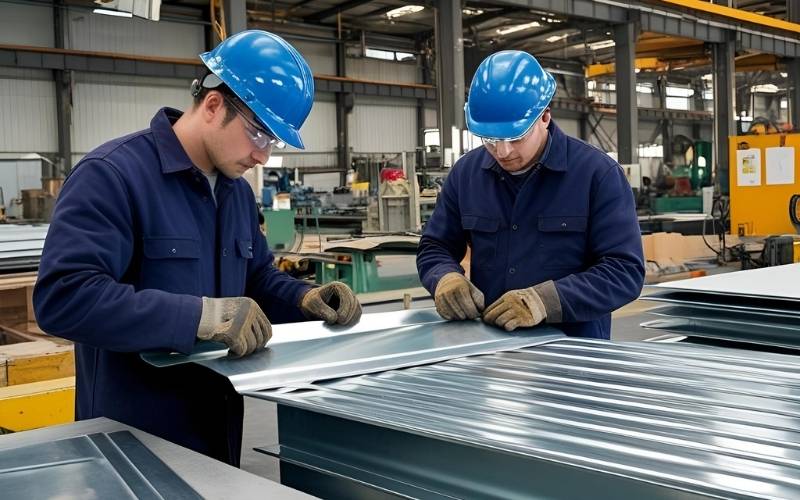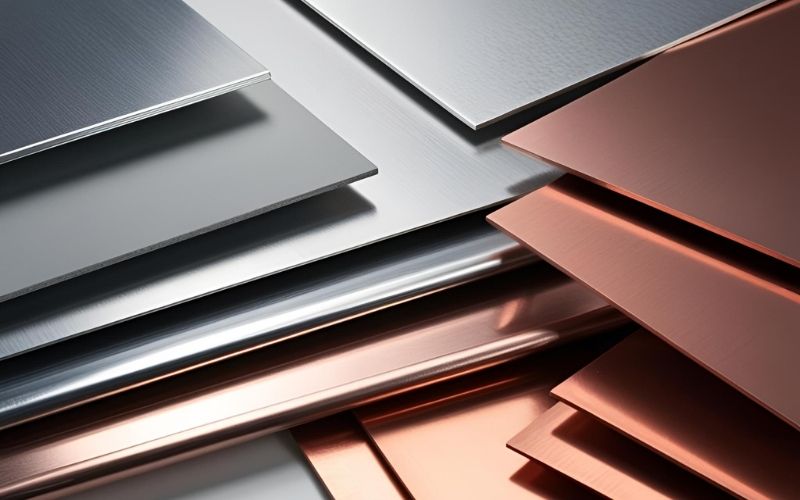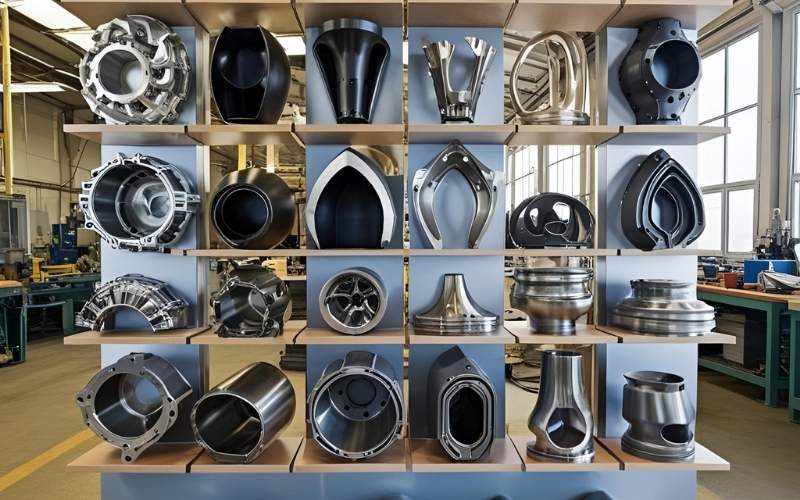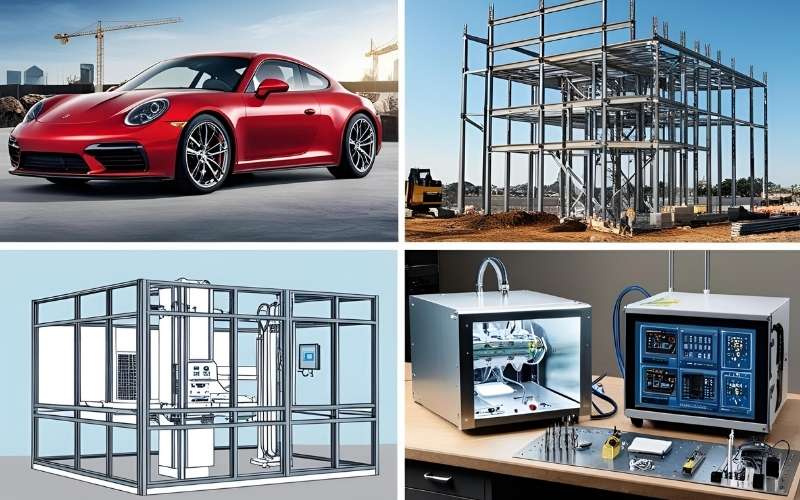Custom sheet metal fabrication plays a crucial role in modern manufacturing, enabling businesses to create highly precise and tailored metal components for various industries. Whether it’s for automotive, aerospace, construction, or medical applications, custom fabrication allows manufacturers to design parts that meet specific requirements in terms of size, shape, durability, and functionality.
In this guide, we’ll explore everything about custom sheet metal fabrication, from its processes and materials used to industry applications and how to select the right fabrication company.
What is Custom Sheet Metal Fabrication?
Custom sheet metal fabrication involves shaping and manipulating metal sheets to create precision-engineered components tailored to specific design requirements. While mass production-based fabrication produces standardized components, custom fabrication utilizes high-tech processes such as laser cutting, CNC machining, and precision welding to create one-of-a-kind metal products with exceptional accuracy.
This process works with a variety of materials, including stainless steel, aluminum, copper, and galvanized steel, allowing businesses in industries such as automotive, aerospace, construction, and electronics to develop customized metal enclosures, HVAC ducts, machine components, and industrial structures. With CAD design software and automation, custom sheet metal fabrication is cost-effective in production, highly durable, and with fine detailing, making it an essential solution for industries requiring high-performance metal components.

Key Processes in Custom Sheet Metal Fabrication
The journey from a flat sheet of metal to a finished custom part involves a series of carefully orchestrated steps. Each step requires specialized tools and equipment, as well as skilled operators to ensure precision and quality.
Cutting
Cutting is the first step in sheet metal fabrication. It involves slicing large sheets into smaller, more manageable pieces based on the design requirements. Several cutting methods are used depending on precision, speed, and material type. Laser cutting is a popular choice due to its high accuracy and clean edges, making it ideal for complex designs. Waterjet cutting uses high-pressure water mixed with abrasive materials to slice through metals without generating heat, preserving the integrity of heat-sensitive materials. Plasma cutting, on the other hand, is best suited for thicker metals and works by using an electrically conductive gas to create a high-temperature plasma arc.
Forming & Bending
Forming and bending follow the cutting process to shape metal into desired forms. This is done using press brakes, which apply force to bend metal at precise angles. Roll forming is another technique used for creating cylindrical or curved shapes. Factors such as metal thickness, bend radius, and material properties must be considered to prevent cracking or warping. Modern CNC-controlled bending machines ensure high accuracy and repeatability in the forming process.
Joining & Welding
Joining and welding are crucial for assembling different metal components. Various welding methods are used based on the material type and application. MIG (Metal Inert Gas) welding is widely used for its speed and ease, making it ideal for large-scale production. TIG (Tungsten Inert Gas) welding provides greater precision and works best for thin metals or detailed fabrication projects. Spot welding is commonly used for joining thin metal sheets by applying pressure and heat in specific points, ensuring strong connections without excessive heat exposure.
Finishing & Coating
Finishing and coating enhance both the aesthetics and durability of fabricated metal parts. Powder coating is a common finishing technique where a dry powder is electrostatically applied and then cured under heat to form a tough, protective layer. Anodizing is mainly used for aluminum parts, providing corrosion resistance and improved surface hardness. Plating involves coating the metal with another material, such as zinc or nickel, to enhance durability and appearance. Proper finishing ensures that the fabricated parts meet both functional and visual quality standards.

Common Materials Used in Custom Sheet Metal Fabrication
The choice of material is crucial for the success of any custom sheet metal fabrication project. Each material offers a unique combination of properties, making it suitable for different applications.
| Properties | Advantages | Applications | |
| Stainless steel | High strength, corrosion resistance, good weldability | Durable, aesthetically pleasing, hygienic | Kitchen appliances, medical equipment, and architectural components |
| Aluminum | Lightweight, corrosion resistance, good thermal and electrical conductivity | Easy to form, recyclable, good strength-to-weight ratio | Aerospace, automotive, and electronics enclosures |
| Carbon steel | High strength, relatively low cost | Strong, durable, cost-effective | Structural components, machinery, industrial equipment |
| Galvanized steel | Carbon steel coated with zinc for corrosion resistance | Enhanced corrosion resistance compared to plain carbon steel | Outdoor applications, HVAC ductwork |
| Copper | Excellent electrical and thermal conductivity, good corrosion resistance | High conductivity, aesthetically pleasing (for certain applications) | Electrical wiring, plumbing, and architectural features |
| Brass | Good corrosion resistance, aesthetically pleasing, good machinability | Decorative applications, good for intricate parts | Musical instruments, decorative hardware, plumbing fittings |

Advantages of Custom Sheet Metal Fabrication
Custom sheet metal fabrication offers several advantages over other manufacturing methods, making it a preferred choice for a wide range of applications. These benefits stem from its inherent flexibility, precision, and cost-effectiveness.
- Design Flexibility: Custom fabrication allows for virtually unlimited design possibilities. Engineers can create complex shapes, intricate features, and customized geometries that would be difficult or impossible to achieve with other methods.
- High Precision and Accuracy: Modern fabrication techniques, such as laser cutting and CNC machining, ensure high precision and tight tolerances, resulting in parts that meet exact specifications.
- Material Versatility: A wide range of metals can be used, allowing engineers to select the material that best suits the application’s requirements in terms of strength, weight, corrosion resistance, and other properties.
- Cost-Effectiveness: Sheet metal fabrication is often more cost-effective than other methods, particularly for medium to high-volume production runs. Material utilization is efficient, minimizing waste.
- Scalability: The process is easily scalable, from prototyping and small-batch production to large-scale manufacturing.
- Durability and Strength: Sheet metal parts can be incredibly strong and durable, especially when using materials like stainless steel or high-strength carbon steel.
- Fast Turnaround Times: Compared to some other manufacturing processes, custom sheet metal fabrication can offer relatively fast turnaround times, especially with advanced technologies like laser cutting.
- Lightweight: Using materials like aluminum allows for the creation of lightweight yet strong components, crucial in industries like aerospace and automotive.

Typical Applications of Custom Sheet Metal Fabrication
The versatility of custom sheet metal fabrication makes it indispensable across a vast spectrum of industries. Its ability to create both simple and complex parts, using a variety of materials, caters to diverse needs.
Automotive Industry
Custom sheet metal fabrication plays a vital role in the automotive industry by creating precision components used in vehicle assembly. Metal parts such as brackets, exhaust systems, chassis, and enclosures require high strength, durability, and lightweight materials to improve vehicle efficiency. Customization allows automakers to produce unique designs and meet performance standards for specialized models, electric vehicles, and high-performance sports cars.
Construction Industry
In construction, custom sheet metal fabrication is used for roofing materials, HVAC duct systems, structural components, and decorative metalwork. The ability to tailor sheet metal to specific architectural and structural requirements enhances the durability and aesthetic appeal of buildings. Fabricated metal parts in construction must meet safety regulations and weather-resistant standards, ensuring long-lasting performance in harsh environments.
Electronics Industry
The electronics industry relies on custom sheet metal fabrication to produce enclosures, circuit board housings, and heat sinks. Precision-cut sheet metal protects sensitive electronic components from dust, heat, and physical damage. Customization is essential for developing compact and lightweight enclosures, particularly in consumer electronics, industrial control panels, and telecommunications equipment.
Medical Industry
In the medical industry, custom sheet metal fabrication is used to manufacture surgical tools, diagnostic equipment housings, and medical storage units. Stainless steel is a preferred material due to its resistance to corrosion, ease of sterilization, and durability. Custom fabrication helps ensure medical devices comply with strict health and safety standards while fitting specific needs, including MRI machines, hospital furniture, and laboratory equipment.

Choosing a Custom Sheet Metal Fabricator
Selecting the right custom sheet metal fabricator is crucial for the success of your project. Here are key considerations:
- Experience and Expertise: Look for a fabricator with proven experience in your specific industry or application.
- Capabilities: Ensure they possess the necessary equipment and processes (such as laser cutting, welding, finishing) to meet your requirements.
- Quality Control: Inquire about their quality control procedures and certifications (such as ISO 9001).
- Materials: Confirm that they work with the materials you need.
- Capacity and Lead Times: Ask about their production capacity and turnaround times.
- Communication and Customer Service: Choose a fabricator who is responsive and communicative.
- Cost: Obtain quotes from multiple fabricators to compare pricing.
Conclusion
Custom sheet metal fabrication is a powerful and versatile manufacturing process that plays a vital role in countless industries. Its ability to create precise, durable, and customized parts, combined with its cost-effectiveness and scalability, makes it a preferred choice for a wide range of applications. From aerospace components to electronic enclosures, the possibilities are virtually limitless. By understanding the processes, materials, benefits, and limitations of this technology, you can make informed decisions and leverage its full potential. If you have a project requiring custom metal parts, we encourage you to explore the possibilities of custom sheet metal fabrication.
FAQs
Custom fabrication involves creating parts tailored to specific designs and requirements, while standard fabrication uses pre-designed, off-the-shelf components.
MIG welding, TIG welding, and spot welding are frequently used, each offering different advantages in terms of speed, precision, and material compatibility.
Cost depends on various factors, including material, complexity, quantity, and finishing. Requesting quotes from multiple fabricators is the best way to get an accurate estimate.
Yes, materials like galvanized steel, stainless steel, and aluminum offer excellent corrosion resistance, making them suitable for outdoor use.
Laser cutting uses a focused laser beam, while waterjet cutting uses a high-pressure stream of water mixed with abrasive particles. Laser cutting is generally faster and more precise for thin materials, while waterjet cutting can handle a wider range of materials, including those sensitive to heat.
